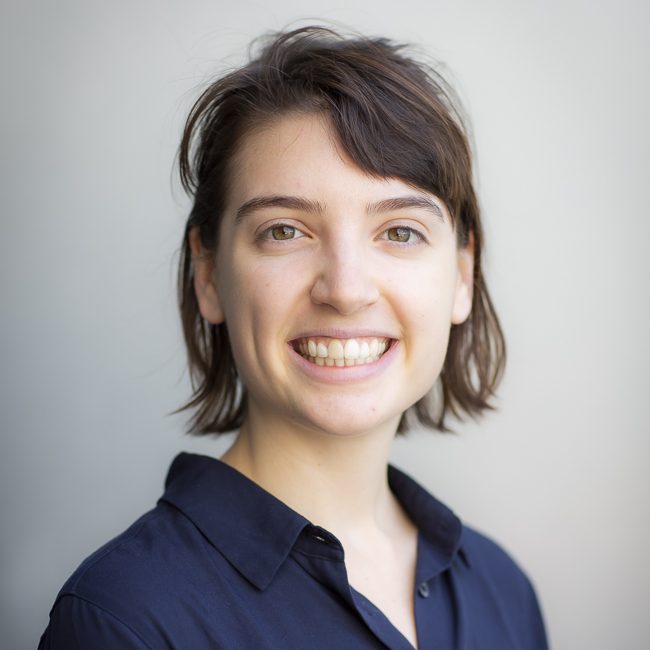
Ariane Mora
The University of Queensland
I have transitioned from an undergraduate in Electrical and Computer Engineering to a PhD in Bioinformatics. Early in my degree I explored potential careers through a series of internships. Of these, bioinformatics, in particular the research component, was the most interesting. I joined the Boden lab at the University of Queensland as a research assistant following the completion of my degree, where shortly after I commenced a PhD in July of 2019.
Can you give me a quick overview of the type of mathematics you are studying and its potential impacts for the broader community
Biological systems are complex. Experiments provide an insight into a particular function, or process at a given time, with each experiment adding to our understanding of the system. How do we combine these data to better understand the intricacies of the system? Lots of maths.
What did you want to be when you grew up? If not mathematics research, what would have been?
Possibly a costume designer for a theatre company. I find the skills required for sewing and coding are transferable: creativity, attention to detail, and design.
You attended AMSI BioInfoSummer, what drew you to this event? What was the most valuable part of AMSI BioInfoSummer for you in terms of furthering your career in mathematical sciences?
Coming from a non-bioinformatics background, I thought it would be valuable to gain insight into the different standards and common approaches in bioinformatics. A summer school was a fantastic way to immerse myself in the field for a week. The opportunity to learn from experts was very valuable and I appreciated the broad topics that were covered in the workshops.
In what ways has the experience impacted your maths studies? Did this event lead to any new contacts, projects, collaborations?
This event provided a great opportunity to network and meet biologists, bioinformaticians, statisticians, and mathematicians. I am sure we will stay in contact and perhaps one day, collaborate together.
Where do you see yourself in five or ten years time?
Given the transient nature of the future, I don’t have a specific end goal in mind. I am curious to see where my PhD takes me, whether I stay in academic or head into industry.
Did you learn about new career options available to you that you were not aware of prior to attending AMSI BioInfoSummer?
I had an interesting conversation with one of the academics working with a mass spectrometer and learnt about forensic mass-spec where they collaborate with the crime department which was an interesting avenue that I hadn’t previously considered.
Who are your mentors? Who do you admire?
I am fortunate to have two fantastic supervisors (Associate Professor Mikael Boden and Associate Professor Jessica Mar) whom provide fantastic support and mentorship. I aspire to be a researcher of the same calibre one day.
You received a CHOOSEMATHS Grant to assist your attendance at AMSI BioInfoSummer. How important was this in terms of your ability to attend and fully participate in the sessions throughout the week?
Without the CHOOSEMATHS grant I would not have been able to attend the AMSI BioInfoSummer. I was fortunate to have stayed in the same accommodation as the other grant recipients, which allowed us to continue the conversations after the conference and network in a casual fashion.
How important are initiatives such as the CHOOSEMATHS Grants in terms of fostering the participation and achievement of women in mathematics, particularly in terms of access to networking opportunities and further training opportunities?
These initiatives are important for a number of reasons. Receiving a grant makes the experience more attainable. In terms of female participation, as many of the recipients were women, it provided a different environment in which to network.
The CHOOSEMATHS Grants are part of a broader program being delivered by AMSI Schools with support from the BHP Foundation to turn the tide on Australia’s maths deficit and strengthen maths education and participation of women across the discipline. What do you see as the big challenges facing maths in Australia, particularly for women?
Participation in maths should be encouraged starting in primary school, and different learning styles should be acknowledged. It’s a shame that maths is associated with words such as “hard” or “scary” (and is taught in this manner), when the reality is that maths is beautiful, similar to music and art, it is a global language. Whilst changing the perspective is important to increase updatake, retention is another story. I’m not an expert in the field, however from my experiences increasing the diversity (not just in gender) would mitigate some of the challenges.
Best piece of advice you’ve received?
The best piece of advice I received was prior to a difficult exam: “It doesn’t matter if you fail this exam, or even this course, or your entire degree – things happen and there’s always a way to change the tide.”
If a peer asked you if they should attend AMSI BioInfoSummer, how would you describe the conference to them?
AMSI BioInfoSummer is a great experience and provided a fantastic place to upskill across a broad range of bioinformatics fields and also to get a good feel of what it means to be a bioinformatics researcher. You’ll meet a diverse group of bright and inspiring people and it is probably best to do early on in your career.

